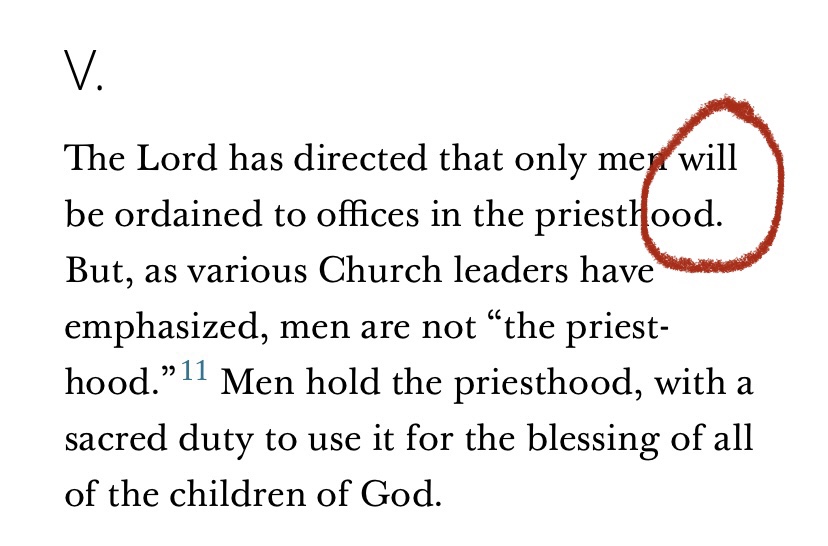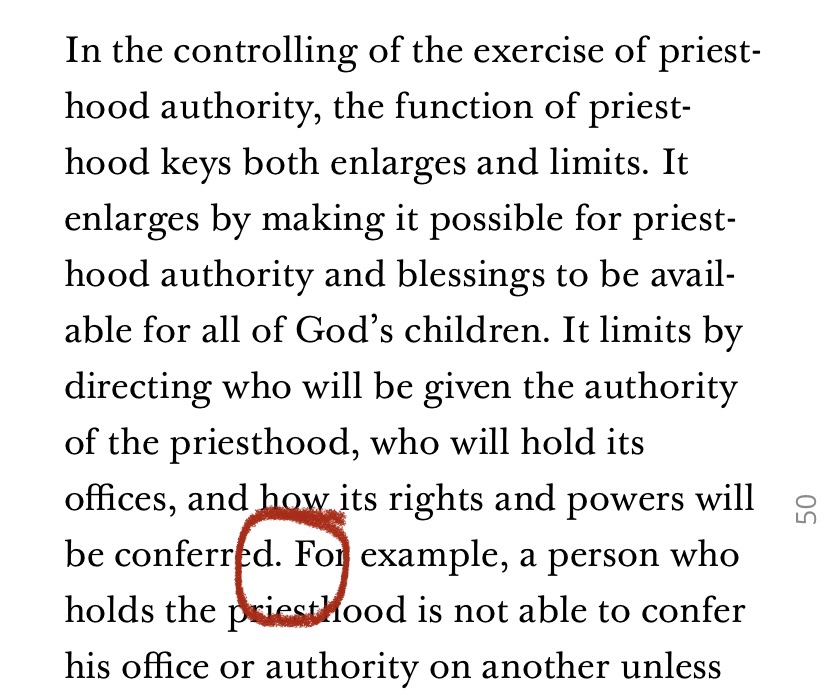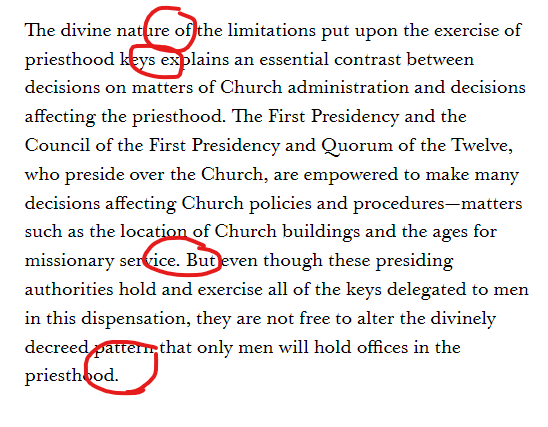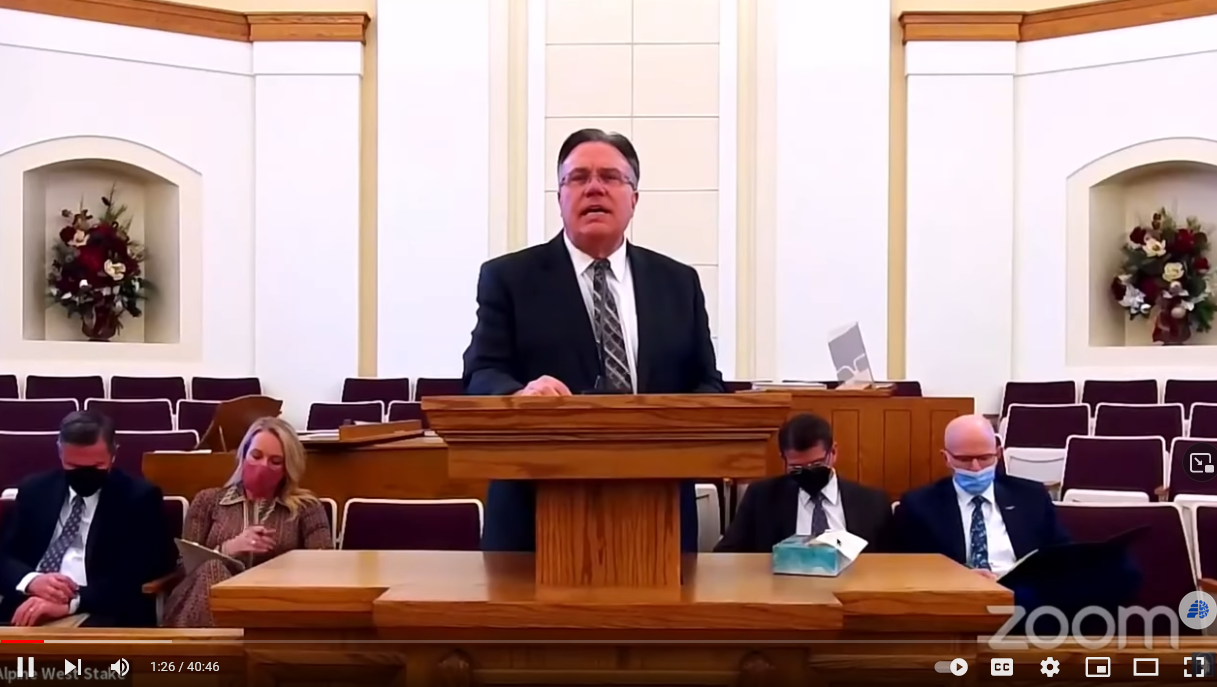I dont know you. I bought the collection of your talks for my kids to listen to years ago. My impression of you is that you are a pretty decent guy, and better yet, you’re from outside Utah, so you “get it” in a way that so many LDS voices don’t.
I don’t know you, but last night you caused me a near breakdown. I was up until 5am talking with sisters shaken and appalled by your address. I had to stay on alert to ensure the Facebook group I admin did not go sideways before you had a chance to rescind your remarks or the church had time to make a statement. I deleted comments that made judgments of you and asked others not to. One of my own children messaged me upset, and I spent a good long time trying to help them give you a chance to talk back what you said.
I got up this morning, and I’m doing it again, with strangers, friends, and acquantainces. I’m cleaning up your mess, but I don’t know you.
You made an apology last night, but it was inadequate.
I believe that you will try to do better.
But the apology you gave missed out on so much of what was wrong with the talk you gave. I’m worried that some may think that what you said is right or describes our beliefs accurately. I’m no gospel scholar. I’m not a general officer or authority. I’m going to take a stab at a teaching opportunity anyway for my own well being and for that of my friends and family.
What you won’t hear
I’m not going to police your tone. That’s how we silence women, and I’m not going to use tone to dismiss or demean you, because if it’s wrong when we do it to women, it’s wrong when we do it to men, too.
I’m not going to impugn your character, which, although I don’t know you personally, I believe to be good.
I’m going to try to keep my expectations for what someone in your position “should” know to a minimum. We are humans, and I realize that I don’t know what you know — I only know what you said. I’m going to try and keep to your words.
I’m going to keep my opinions on those with instructional design degrees to a minimum. This is a personal issue of mine, based on the fact that I have a MEd in Learning and Technology, the first half of which was instructional design coursework. I completed the coursework in three months despite having exactly zero professional teaching training (I have a BA). I was disgusted with the lack of academic rigor expected of education professionals, and it colors my opinion of the degree qualifications. I’m going to try and watch for my own opinions seeping in and try to keep myself from leaking in.
I’m not going to try and cite everything atm. There’s… a lot. And as a MEdLT, I’m no scholar.
What you will hear
I’m going to compare your words to our teachings and our history. This is where you went badly wrong.
The facts — the history — you got wrong are what is wrong with your talk, and it’s why your apology was inadequate.
I’m going to start with the P is for Priesthood clipped version of this unfortunate talk. If I get my energy back up I will look at the others.
“Brigham Young was a jerk; members of the church were prejudiced”
My reading of Brigham’s words in Journal of Discourses shows he was sometimes a jerk. He admits it, and he describes the interventions others make trying to get him to dial back. His 1852 talk to the the Utah territorial legislature to justify the temple and priesthood ban is indeed prejudiced (“preconceived opinion that is not based on reason or actual experience”) and current church teachings condemn his prejudicial reasoning.
Maybe we’re asking the wrong question. Instead of asking why the blacks had to wait until 1978 to receive the priesthood, maybe we should ask why the whites and other races had to wait until 1829 [paraphrased]
I cannot express the pain this absurdity is causing my friends and myself. I hardly slept and nearly had a breakdown. Most of us are physically ill. This needs to be handled.
Elijah Able, a black member of the church, was ordained to the Melchidek priesthood as a seventy in 1836. He retained that ordination throughought his life, serving multiple missions for the church. He died in 1884, a worthy priesthood holder.
There were others going back to the very beginnings of the church — Able is just the most well known.
Your history is wrong here, and so is your premise, Brother.
Worthy black members had the priesthood with ting months of white members receiving it. the question is not why did they have to wait until 1978, the question is why were worthy men denied temple access? What changed?
When people ask about why blacks were excluded from the temple, they’re not only asking about the dates (which you got wrong), they’re asking “why was someone with the Melchizedek priesthood banned from temple ordinances”? He was worthy. He was active. He was ordained. He sought the blessings. Why was he denied?
You remind women later in your speech that they don’t even need priesthood to enter the temple, hinting it was because we are so righteous based on something we probably did in the pre-existence. I will remind you that in our past, church leaders taught that blacks were denied priesthood because of something they did not do in the preexistence — “fence-sitters” was the way I was taught. This racist teaching is now rightly condemned. Can you see why this is terribly problematic? Can you see why your apology was inadequate because of the implications of these words? Can you see the sexism and racism here?
The answer to this question is plain when we read Brigham Young’s legislative address. Members are wondering why you and others refuse to wrestle with this and leave us floundering with whether God is racist or human prophets are. It’s hard. Please stop dismissing this. We need your leadership here in dealing with these hard questions. Please, please help us.
Why did everybody but the tribe of Levi have to wait?
This reasoning has been soundly refuted in depth elsewhere by people lots smarter than me. But quickly, the Book of Mormon teaches that Nephites, descendants of the tribe of Joseph, had priesthood. Your argument is erroneous and a bad explanation for the ban.
“Just be grateful that the blacks received the priesthood back in 1978”
We are.
It’s the questions about prophetic infalliability, premortal righteousness (that you have now stirred back up), and trust in leaders that we’re worried about.
We can be both grateful and worried — and faithful members.
Pardon me while I break my own rule…
Okay, I’m going to indulge in one tone quibble here: “the blacks”? “the girls”? Dear God.
“Just because someone is angry doesn’t make him or her right”
Agreed.
But it does mean they’re hurting. We ought to reach out to those in pain, not dismiss them because they’re angry or because their tone is off. Fix the problem, and the tone will fix itself. It doesn’t work the other way ’round. Tone policing is a well known ad hominem attack that focuses you on the feeling stirred up by a discussion rather than the facts. It’s often used to dismiss women because of their “emotions”, and your use of it here and later in the discussion about the conference woman is disappointing.
“And then I asked ‘what’s the priesthood’?”
Okay. I get that this is an anectdote and I think we can agree it’s a bad one. Your audience has been taught the church’s current definition of priesthood since their youth. The youth in your audience wondering why women don’t have priesthood can define it. This was a poor example to use.
As a reminder, though, the way we use this word has changed over time dramatically. Joseph Smith doesn’t seem to have used it in the way Dallin Oaks does. The term priesthood is so amorphous that it requires a definition to clarify its current use in the handbook.
Again, this is a topic that has been discussed in depth elsewhere.
“There is not one priesthood blessing that you are denied”
It is true that I, a woman, can participate in all temple ordinances, with the exception of proxy Melchidedek priesthood ordination. I can be baptized and receive the Holy Ghost. Even the second anointing is open to me (if I happen to marry someone important enough).
But there are indeed blessings I am denied by not being ordained to priesthood. I cannot participate in blessing my child or another woman in preparation for childbirth. Is providing a blessing a blessing? I can not preside over a meeting, even a meeting of women, if a male is present. Is presiding a blessing? I am not promised the ministering of angels. Is this not a blessing? I am not given access to the mysteries of the kingdom. Is this not a blessing? I’ll never be a bishop, mission president, or sustained as a prophet. Is this service not a blessing?
I don’t think it’s worth getting off into the weeds about whether women want these things or not. But to claim that there’s no blessing I’m denied without priesthood ordination is patently false. Can we stop?
“You serve with priesthood authority”
Yes. Another way of saying this is that I serve with the permission of a priesthood leader. It is orderly. But no woman can ever serve without male intervention. When my children were younger, I used to leave one or the other in charge when I was gone. They were in charge because of my authority. They were not the authority. I was always in charge, present or not.
I’m grateful for (most of) the opportunities I’ve had to serve in the church. I have not worked out my own feelings fully, but I recognize why this gender-based structure is of concern to women. I have not found it’s helpful to dismiss these feelings when I talk to other women about this challenge.
Don’t mix having keys up with having influence
You know who doesn’t talk about priesthood keys? Women.
Okay, yeah, it’s anecdotal. But I’ve never in my life had a discussion with a female about priesthood keys. They aren’t interested. They don’t understand them (and of course they don’t — keys is another term that has changed dramatically over time. I’ve given up trying to explain it and just say that keys means whatever the person talking about them thinks its means). We don’t discuss keys to explain why we are t included in leadership decisions. It just isn’t a thing.
In my experience, when women ask about not having priesthood, they’re not asking for keys. They’re not asking for your power. They’re asking for a seat at the table. They’re asking why there is no female leader who meets regularly with the First Presidency. They’re asking why there are 300+ men leading the church with the voices of just 9 women sprinkled in at the top. (Thank you, European area, for putting women in leadership at that level. You are heroes.) They’re asking why women have term limits on their service. They’re asking why the largest women’s organization in the world is run with just 3 women and a council, as if it were a stake. They’re asking why men (who are not women) attend all women’s meetings, but women do not attend priesthood meetings (even though we exercise priesthood authority).
We want to know why our voices and values and concerns are not important enough for a seat at the table.
We want to know why daughters of God are treated as accessories to his sons in his church ….
… and what does this mean for us eternally.
I’m aware of the changes to some structures. But this is not about keys. It’s about roles of women that extend beyond cookie baking and baby making. I’m 47. My kids are grown. I’m fixed. The hubs is not going to be a mission president or GA, and lord knows I’m not destined for stake or general leadership. The church has literally no teaching for what purpose women like me exist for, and plural marriage as it was often practiced teaches me that my usefulness stops with menstruation.
We need help to understand our role. Make it larger than whose in charge. Make it larger than building your kingdom.
Hear me.
Trust me.
Let me grow and show me examples of it.
But for pity’s sake, don’t patronize me by telling me I’m super righteous and should sit down and not use it. I’m just not righteous and my butt is sore from all this waiting.
Maybe we should be asking why don’t women need to be ordained to priesthood … what is it that sisters are bringing with them from the premortal life that men are trying to earn through ordination [paraphrased]
I’ve already talked above about how we have condemned the idea that premortal wickedness results in cursing in this life. Does it make sense to say, as you do here, that women’s premortal righteousness has earned the special blessing of a priesthood ordination … drought? Does it make sense to argue that only good premortal actions affect this life? That bad ones don’t? This is a theological question that few of us really wrestle with. What premortal actions earned you a good Mormon family? Which ones earned you an abusive one?
This is an area where we just aren’t really able to comment without opening a can of worms that we can’t wrestle with authoritatively. Please don’t.
I have so many thoughts swirling here. At least one is that it’s important to remember that women have not always been included in temple worship. We were excluded from access to the tabernacle, which is why Hannah had to cry at the doors and was mistaken for being drunk. We were excluded from it in Jesus’ day and allowed no farther than the court of the women. Even today, women were not included in the endowment or washings at their inception — allowing female participation was, in my opinion, a great advance of Joseph Smith’s. But it wasn’t automatic. There’s simply no historical precedent for Brother Brad’s teaching.
Is it important that women are included in the temple? Of course. But it doesn’t make sense to argue that women are so righteous that they can just stroll into the temple. We couldn’t historically. Women have never been seen in this way. It’s an innovation of Brother Brad’s that doesn’t make sense to me and that I can’t support historically.
The “women are so righteous they don’t need priesthood like men do” argument has always confused me. I have a relative who was not ordained to the priesthood on time as a deacon or a teacher because he was “unworthy.” All men who are ordained to the priesthood are… worthy. They are living exemplary lives or at least trying to. They are serving, teaching, avoiding bad music, porn, masturbation, etc, etc. They are exceptional individuals, and in some ways, held to a higher standard than women. They face humilating church courts with 15+ men present when they screw up, and they are often expected to serve in responsible church leadership positions with nothing but an unrelated doctorate in Instructional Design to help them.
Our priesthood holders… are good men.
Some of them are even great men.
Note what I’m not doing here. I’m not either tearing down or pedestalizing women to acknowledge male goodness. It is okay to acknowlege our good boys and men. My relative goodness is unchanged by yours. We are all trying to be good. My innie is not a gift superior to your outie based on my extreme premortal awesomeness, nor is it a curse because of Eve’s transgression. We are equals — sons and daughters of God, made in his image — Adam-ribbed, right? I mean, that’s what I’ve been taught. And I believe it at my core.
I am disturbed by this messaging that from my perspective demeans men, women, and priesthood in order to just get woken to sit down and shut up.
When I hear leaders like you tell me that I’ve already got all the perks of priesthood without ordination, it makes priesthood a big nothingburger. Why be ordained at all if it does literally nothing?
The priesthood is not a big nothingburger. It matters. It is a blessing. I taught that to my son, and I’m dismayed when I hear leaders use language to demean priesthood in order to make women feel guilty for wanting it. It’s okay to want blessings. I can’t explain why the requirement for priesthood is worthiness, but worthy women can’t ever earn it. I find the “pattern” argument unpersuasive and note that Elder Oaks does not attempt to cite a scriptural basis for it in his seminal talk on the subject:



Female ordination is something we are still working out doctrinally. We have a current policy. Can we just sit with that instead of tearing down our core teachings with arguments that diminish priesthood, tear down good men, pedestalize women for simply existing, and make no flipping sense?
Wanna walk away from the church? Walk away from anything that matters
I’m exhausted.
My family are nonmembers. Their lives have meaning, purpose, and direction. My life is confused, and part of the reason why is wrestling with priesthood and our teachings around it.
In years past I may have thought like Brother Brad — that leaving the church is a catastrophe. I no longer think that. I believe in God who is love and continues to work with all his children wherever they are. And where I differ from the average church member is I believe in people. I believe human beings are trying their best, winding and weaving through life, just like I am. Their paths may lead them in or out of the church or around it entirely. Regardless, they are not beyond the reach of God’s love. If we truly believe in agency and the efficacy of proxy ordinances, we have got to stop freaking out when someone’s path changes. A path that can change, can change. I believe more in human goodness (worthiness, if you like) than I do in people’s steadfastness.
I need messages of hope and love, not fear. Faith motivates; fear paralyzes. We need leadership to emulate how to embrace the natural shifts of our lives, not to fear them. No choice is permanent if agency exists. Let’s stop catastrophizing everything.
Your apology was inadequate
I hope I’ve made an argument here that shows plainly why your apology for the “illustration” you used about the timing of the revelation of the priesthood was wrong. There’s a lot more going on here than a bad story. Your facts are off, your teachings expand on settled ideas in a way I think a resonable member would find unwarranted, and the sexist demeaning of men, women, and priesthood is out of line.
And there’s more to the talk.
We need more from you, Brother Brad.


